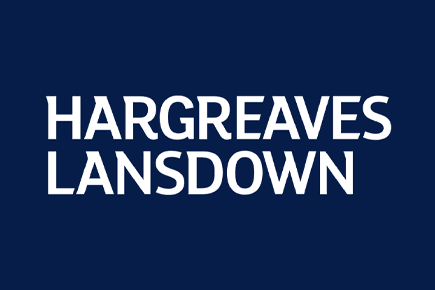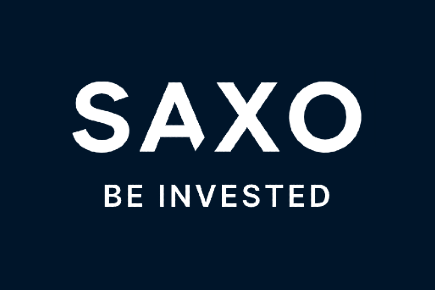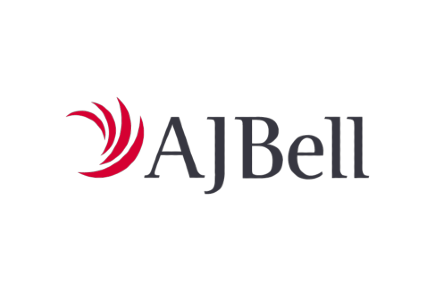Investing can be a great way to grow your wealth, as you may have noticed that low interest rates in recent months have made savings accounts unattractive places to store your cash. Slow growth means that the true value of any cash you hold in your savings accounts may be eroded over time by inflation.
If you want to start investing but you don’t want to expose yourself to too much risk, you may want to consider buying bonds. Bonds are investment options that can provide a passive income and can be a valuable way to grow your wealth in the long term.
There are a variety of ways to earn guaranteed income, such as fixed-rate bonds, but it’s important to know which are right for you.
If you want to know more, read on for your comprehensive guide to guaranteed investment bonds UK.
Also consider: Your Comprehensive Guide to UK Treasury Bonds
Where to buy guaranteed investment bonds in the UK
The following investment platforms provide UK investors with a choice of investment bonds to choose from.
Interactive Investor
Interactive Investor offer a range of guaranteed investment bonds for UK investors
Important information - investment value can go up or down and you could get back less than you invest. If you're in any doubt about the suitability of a Stocks & Shares ISA, you should seek independent financial advice. The tax treatment of this product depends on your individual circumstances and may change in future. If you are uncertain about the tax treatment of the product you should contact HMRC or seek independent tax advice.
Hargreaves Lansdown
Hargreaves Lansdown is a leading investment bond provider with access to wide range of investment bonds.
Capital at risk.
CFDs are complex instruments and come with a high risk of losing money rapidly due to leverage. 71.91% of retail investor accounts lose money due to CFD trading with this provider. You should consider whether you understand how CFDs work and whether you can afford to take the high risk of losing your money.
Saxo Markets
Trade over 5,000 government and corporate bonds in Europe, US, Asia, Middle East and Latin America digitally with Saxo Markets.
61% of retail investor accounts lose money when trading CFDs with this provider. You should consider whether you understand how CFDs, or any of our other products work, and whether you can afford to take the high risk of losing your money. The value of your investments can go down as well as up. Losses can exceed deposits on some margin products. Professional clients can lose more than they deposit. All trading carries risk.
AJ Bell Youinvest
Find a wide range of investment bonds from AJ Bell Youinvest.
Remember that investments go up and down in value, and you could lose money as well as make it. How you’re taxed will depend on your circumstances, and the rules can change.
What are bonds?
To put it simply, a bond is essentially a fixed-term loan to a company or government. When you invest in a bond, you lend money to an organisation for a set period of time, generating income for yourself with a fixed rate of interest.
By the time the bond matures, which is typically between six months and five years, depending on the provider, you will be repaid your original investment with some interest.
What type of bonds are available?
Usually, government and corporate bonds are the most common examples that you’ll find, though savings bonds offered by banks and building societies can also be a good investment. These are the three most popular types of bonds available.
Corporate bonds
These are some of the most common types of bonds that you might come across. Typically, businesses sell bonds whenever they need to raise money so you’re essentially buying their debt.
Government Bonds
Government bonds work in a very similar way to corporate bonds, but are considered to be much safer. This is because there is a negligible chance of the government defaulting on its debt obligations. They are also sometimes known as “gilts”.
Savings bonds
A savings bond is a financial product that is similar to a savings account, only without the flexibility. Typically, most savings bonds require an up-front cash lump sum to open.
With these, your money is locked away for an agreed amount of time and usually, the longer you commit to leaving your savings untouched, the more interest you’ll get. Fixed-rate savings bonds can be a useful way to grow your money, but it’s important to be aware that if interest rates suddenly rise, your fixed-rate bonds will be locked in at the rate offered when you bought them.
Of course, the opposite is also true. If your interest rate is likely to fall, by locking in fixed-rate savings bonds, you can help to maximise your profits.
Additionally, if you do need to withdraw money from your bond before it reaches maturity, you may be charged a penalty fee for the early withdrawal. It is not like keeping savings accounts, in which you have instant access to your money, as you have to keep it with your provider for a fixed term.
This is why it’s important to carefully consider whether fixed-rate savings bonds are right for you.
Are bonds guaranteed not to lose money?
As a general rule, bonds can be considered a safer investment than some others. That being said, it’s important to remember that all investments come with some inherent risk, no matter how small that may be.
When you buy a bond, the organisation that you buy it from promises to repay you in full, along with some interest. This means that you will be repaid more than you originally invested.
The only risk is that if the organisation suffers severe financial difficulties, then it may be unable to fulfil its debt obligations. However, this is generally unlikely to happen.
What are the safest bonds to invest in?
One common question that people want to know about bonds is which type of bond is the safest to invest in. While there is a straightforward answer to this question, the issue of risk is a broader topic.
Typically, the safest bond you can buy is a government bond, also known as a gilt. This is because, as I mentioned earlier, there is almost no chance of the government being unable to meet its debt obligations.
In fact, UK gilts are considered by many investors as one of the safest bonds in the world, as the government has never defaulted on their debt repayments.
However, because gilts are a very low-risk investment, they are unlikely to pay a high rate of interest so you may not make a significant return. Typically, the more risk an investment has, the greater prospect it has for returns.
If you want to know more about the relationship between risk and returns, you may want to speak to a financial advisor.
How do I buy bonds?
Typically, the process of buying bonds differs depending on which type of bond you want.
Corporate bonds
For example, if you want to buy corporate bonds then you usually need to speak to a stockbroker, who can help you in a variety of ways. For example, they can give useful advice for which bonds to invest in, the length of the bonds, and the level of risk you should be prepared to undertake.
Government bonds
If you live in the UK, you can buy gilts directly from the British government. To find out more, visit the Debt Management Office online portal to learn everything you need to know about this market.
Typically, the minimum investment for this type of bond is £100 and you can buy them in multiples of this amount.
Savings bonds
Usually, you can buy savings bonds directly from banks and building societies, so you may want to speak to your existing lender, if you have one, about doing so if you’re interested. Please bear in mind, however, that you will often need to place a minimum deposit to open one, such as £500 or £1000.
While you don’t need to seek professional advice before buying savings bonds, it may be beneficial to do so as they can help to assess whether they are right for you.
Funds and trusts
Investing in mutual funds or unit trusts can also be a valid alternative if you’re apprehensive about buying bonds directly. Investment funds allow you to pool your money with other people and then invest the money in a range of assets, including bonds.
Choosing a regulated provider
It’s often a good idea when buying bonds to choose a bank, building society, or provider that’s regulated by the Financial Conduct Authority and the Prudential Regulation Authority (PRA).
This is because investments which are not regulated by the Financial Conduct Authority could pose an unnecessary risk to your investing wealth.
While you still face investment risk when buying bonds, these watchdogs ensure that financial services companies are held to high trading standards.
Are bonds right for me?
To put it simply, there are a variety of pros and cons when it comes to buying bonds, so it’s important to think carefully before making a decision.
Pros
- Bonds offer regular payments
- You have the freedom to choose how long to invest for
- There are different levels of risk available to suit your tolerances
Cons
- Once you have a bond, you may have to pay a fee if you want to withdraw it early
- Low-risk bonds tend to come with low returns
- Gilts and corporate bonds are not covered by the Financial Services Compensation Scheme (FSCS)
Useful Information
Is it possible to sell a bond once I’ve bought it?
If you buy a bond, the simplest way to profit is to simply wait and collect the regular interest payments. When the bond reaches maturity, you should also be paid back your original capital. However, you do have other options.
As you may have read in our previous article explaining low-risk investments, when you buy bonds you may have the option to trade them on a secondary market.
Typically, once corporate bonds have been issued, their value fluctuates and if the price increases since you bought it, you could consider selling it on for a profit.
What are offshore bonds and inshore bonds?
If you’ve ever researched what investment bonds are available, you may have come across the terms “inshore” and “offshore” bonds. These terms might sound confusing initially, but they’re actually quite simple.
Essentially, the only difference it makes is for tax purposes:
Onshore bonds
To put it simply, onshore bonds are typically registered in England and other parts of the UK, and so are subject to UK corporation tax, which is usually offset by the bond’s provider.
These bonds are also usually given special tax treatment, which other UK-based investments don’t get. This can potentially provide valuable tax planning opportunities.
Furthermore, any dividend income you receive from an onshore investment bond is not taxed and there are useful benefits when it comes to Capital Gains Tax too.
Offshore bonds
An offshore investment bond means the bond is issued from outside of the UK, often giving you a wider variety of choices. Offshore bonds can have several useful tax benefits, and this can sometimes mean they grow faster than onshore bonds.
However, you may have to pay Income Tax on any gain at your highest marginal rate because, unlike with an onshore bond, HMRC won’t treat you as a basic-rate tax payer when considering your gains.
If you are tempted to choose an investment bond, it’s important to seek professional financial advice first to ensure that you make a properly informed decision, helping to prevent you from running into tax issues. This is because even if you only pay a basic rate of tax, this can eat significantly into your profits.
How can working with a financial advisor help me?
When it comes to growing your wealth through investing, there can be many potential issues to be aware of. One of the most significant ones can be the number of tax rules which you might accidentally stumble into if you’re not careful.
Depending on your level of income, and so whether you’re a basic-rate taxpayer or a higher-rate taxpayer, these costs could significantly eat into your profits from investing. This is why you may want to avoid having to pay tax where you can.
While the internet means that it’s never been easier to get involved in investing, it’s important to make sure that you’re making an informed decision with your money.
This is where working with a financial advisor can help you, as they can make sure that when you pay tax on your guaranteed income bonds, you don’t pay any more than you need to.
They can also help you to accurately assess your tolerance to risk to see what type of bonds would be right for you in your individual circumstances. They can also keep you updated on market movements. For example, they may encourage you to buy fixed-rate bonds if there is an imminent base rate fall which could impact your interest rate.
An advisor can ensure that you’re making properly-informed decisions when investing, help you to grow your wealth in the most tax-efficient way with the best investment choices possible, and giving you a greater degree of financial confidence.
Please note
The value of your investments (and any income from them) can go down as well as up and you may not get back the full amount you invested. Past performance is not a reliable indicator of future performance. Investments should be considered over the longer term and should fit in with your overall attitude to risk and financial circumstances.
Please note that this article does not constitute financial advice.
- Learn how to invest in the FTSE100
- Have you considered transferring your pension?
- Find the best trading platforms





